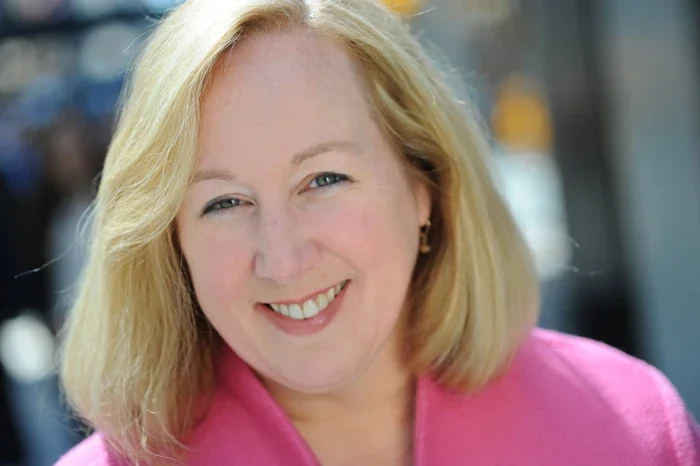Partnership agreements can give your business a healthy foundation. According to research conducted by professor Noam Wasserman at Harvard, an estimated 40% of business partnerships are formed between friends. But when business gets tough, it can also cause a strain in the friendship.
The best solution is to draft a partnership agreement to help make clear upfront everyone's expectations and responsibilities, to avoid misunderstandings and hurt feelings down the line.
Clarfy the business arrrangement
"Clearly clarifying the roles, responsibilities, expected inputs, company vision, partner behavior, and exit strategy, right from the start," as part of their written partnership agreement is what saved Leigh Louey-Gung's friendship with her business partner when they started their internet security company website in 2014.
Having both been partners in previous businesses that had "suffered due to a lack of a partnership agreement," to Louey-Gung and her new business partner wanted to avoid any miscommunication or misunderstanding in their new venture.
That meant committing to paper how they agreed they would run the business together. They included which areas of the business each would be responsible for, what positions they would hold, how much time they were each expected to invest in the business, the goals for the company and its growth trajectory, when they would meet to work on the partnership, and what the process would be if they decided they needed to dissolve the company, explains Louey-Gung.
"Partnership agreements are a good idea anytime two or more people are 'going in' on something together," says Damien Weinstein of law firm Weinstein + Klein, PC. "They basically serve as a guiding constitution to your partnership—what you can or can't do, what your rights and obligations are to each other and the company, how decisions are made, how partners are paid or compensated (if at all), and, most importantly, how to resolve disagreements," Weinstein says.
Key provisions to include in a partnership agreement
According to Weinstein, the following are some of the key provisions to include in your partnership agreement:
Ownership interest
This is, "Not just a breakdown of percentages, but also how different contributions (i.e., money versus sweat equity) play into that," Weinstein explains.
When Noah Kotlove partnered with friend Spencer Joynt to form Veil, an odor-eliminating spray for cannabis users, the duo knew that Kotlove would have more time to devote to growing the company, at least in the short-term, while Joynt was busy running his own design studio.
Consequently, the partners crafted a partnership agreement that allowed more financial incentives in the short-term, while maintaining Joynt's long-term upside in equity, says Kotlove. "This allowed me to fully throw myself into the venture without any bitterness from the imbalance in our schedules," he says.
Decision-making
Weinstein recommends addressing what requires a unanimous vote, a majority vote, whether that can be done by a single partner on behalf of the partnership, and how deadlocks can be broken.
Adding new partners
Deciding in advance whether new partners are allowed, how, and on what terms should also be addressed.
Exit strategy
Weinstein suggests the partners should discuss in advance how one of them can get out if and when they want to, whether partners can resign and withdraw if there's a penalty, and whether the partnership needs to be dissolved.
Disputes
Calling this "the big one," Weinstein advises outlining how partners will address disagreements. "There can be informal procedures—like submitting disputes to a trusted, neutral adviser. Then there are obviously more formal approaches—arbitration, mediation, etc.," he says.
Of course, you can address as many issues in a partnership agreement as you so choose. There is nothing wrong with over-clarification. Other topics you might include are:
Responsibilities
Because they had defined their respective roles and responsibilities, "when areas of the business were underperforming, [they] didn't have to argue about who should have been paying more attention to them; [they] could just look at the agreement and it was clear who had been negligent," says Louey-Gung.
Time invested
The partnership agreement also prevented feelings of resentment about who was putting more time into the business.
When Louey-Gung felt she was putting much more time than her partner into building the business, she called him out on it. So they referred to their original agreement and saw that both were actually putting more time than they had agreed to. This way, they averted any damage to their friendship.
Financials
When Rex Freiberger, CEO of Gadget Review, partnered with a long-time friend on a new business, the two made sure they could refer to their legal agreement when questions regarding ownership shares and revenue split arose.
"I'm positive we would have had a falling out over financials otherwise," says Freiberger, "as it's impossible to discuss money without a protective personal investment." Their formal agreement made it easier to keep their business partnership and friendship separate, he says.
Company direction
Louey-Gung discovered that her partner was a "classic entrepreneur personality type" who was always on the lookout of new business opportunities. On the other hand, she is an operator who is more concerned with developing sound processes and systems.
The two butted heads, so they went back to their partnership agreement, which "specified our vision for dominating one niche rather than being fifth place in five niches."
Regular meetings
The most important element in the partnership agreement, however, was the clause regarding how often the two founders were to meet and discuss the partnership.
"This was time specifically set aside each month that forced us to ask really tough questions of the other person about our performance in the partnership and how we could operate in a more effective and efficient way," Louey-Gung says. Those monthly meetings "allowed us to get on top of any simmering issues before they became big issues."
"Partnerships are a wild ride, but if you get everything clear before you launch in, you can achieve far more than you can on your own," says Louey-Gung.


